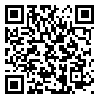Volume 4, Issue 4 (December 2025)
IJER 2025, 4(4): 0-0 |
Back to browse issues page
Download citation:
BibTeX | RIS | EndNote | Medlars | ProCite | Reference Manager | RefWorks
Send citation to:



BibTeX | RIS | EndNote | Medlars | ProCite | Reference Manager | RefWorks
Send citation to:
Mehrabian N, Salehi H, Tabatabaei O, Vahid-Dastjerdi H. (2025). Predicting EFL Teachers’ Critical Thinking Tendencies: Metacognitive Skills, Teaching Experience and Gender in Focus. IJER. 4(4),
URL: http://ijer.hormozgan.ac.ir/article-1-145-en.html
URL: http://ijer.hormozgan.ac.ir/article-1-145-en.html
1- English Department, Najafabad Branch, Islamic Azad University, Najafabad, Iran
2- English Department, Najafabad Branch, Islamic Azad University, Najafabad, Iran ,hadisalehi1358@yahoo.com
2- English Department, Najafabad Branch, Islamic Azad University, Najafabad, Iran ,
Abstract: (625 Views)
Objective: The present study aimed to examine the correlation between metacognitive proficiencies and critical thinking tendencies among EFL (English as a Foreign Language) instructors in tertiary academic institutions. Additionally, it sought to investigate the potential effects of gender and teaching experience on these relationships.
Methods: A total of 100 EFL instructors (52 females and 48 males) teaching undergraduate English majors at Azad and Payame Noor universities in Isfahan and Ilam provinces participated in the study. Data were collected using two standardized instruments: the California Critical Thinking Disposition Inventory (CCTDI) and the Metacognitive Skills Scale (MSS). Pearson Product-Moment Correlation was employed to explore relationships between variables, while multiple regression analysis was used to assess the predictive power of independent variables on critical thinking disposition.
Results: The analysis revealed a positive but modest correlation between EFL instructors’ metacognitive skills and their critical thinking tendencies. When categorized by teaching experience, novice instructors demonstrated a significant and strong positive correlation, whereas experienced instructors showed a moderate but meaningful relationship. Furthermore, a statistically significant difference was found between male and female instructors, indicating that gender played a role in the relationship between metacognitive skills and critical thinking disposition.
Conclusions: The findings suggest that metacognitive proficiency contributes to fostering critical thinking tendencies among EFL instructors, with variations influenced by gender and teaching experience. These results carry important theoretical and practical implications for EFL stakeholders—including educators, researchers, and policy-makers—by underscoring the need to enhance metacognitive training and critical thinking development in teacher education programs.
Methods: A total of 100 EFL instructors (52 females and 48 males) teaching undergraduate English majors at Azad and Payame Noor universities in Isfahan and Ilam provinces participated in the study. Data were collected using two standardized instruments: the California Critical Thinking Disposition Inventory (CCTDI) and the Metacognitive Skills Scale (MSS). Pearson Product-Moment Correlation was employed to explore relationships between variables, while multiple regression analysis was used to assess the predictive power of independent variables on critical thinking disposition.
Results: The analysis revealed a positive but modest correlation between EFL instructors’ metacognitive skills and their critical thinking tendencies. When categorized by teaching experience, novice instructors demonstrated a significant and strong positive correlation, whereas experienced instructors showed a moderate but meaningful relationship. Furthermore, a statistically significant difference was found between male and female instructors, indicating that gender played a role in the relationship between metacognitive skills and critical thinking disposition.
Conclusions: The findings suggest that metacognitive proficiency contributes to fostering critical thinking tendencies among EFL instructors, with variations influenced by gender and teaching experience. These results carry important theoretical and practical implications for EFL stakeholders—including educators, researchers, and policy-makers—by underscoring the need to enhance metacognitive training and critical thinking development in teacher education programs.
Keywords: Critical thinking tendencies, EFL teachers, Gender, Metacognitive skills, Teaching experience
Type of Study: Original |
Subject:
Educational Psychology
Received: 2024/02/21 | Accepted: 2024/11/6 | Published: 2025/12/1
Received: 2024/02/21 | Accepted: 2024/11/6 | Published: 2025/12/1
Send email to the article author
| Rights and permissions | |
 |
This work is licensed under the Creative Commons - Attribution 4.0 International. |






